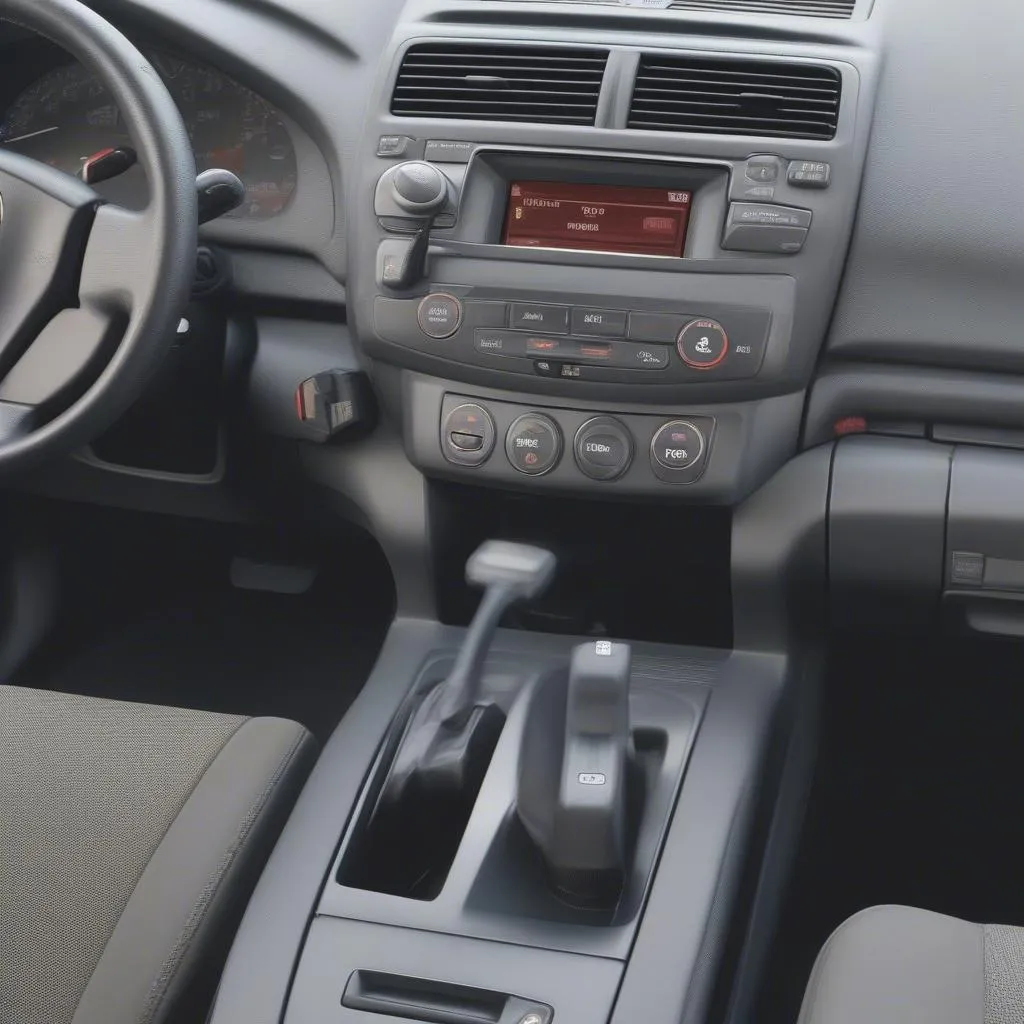You’re working on a repair project for your 2005 Honda CRV and need to connect your diagnostics tool. But where is the OBD port located? It’s a common question, and finding it might be tricky if you’re unfamiliar with the car’s layout. This article will guide you through the process of locating the OBD port on your 2005 CRV.
Why is the OBD Port So Important?
The OBD (On-Board Diagnostics) port is a critical point of access for your 2005 Honda CRV’s computer system. It allows mechanics and enthusiasts to diagnose and monitor various aspects of the vehicle’s operation. This includes:
- Troubleshooting Engine Problems: The OBD port provides access to real-time engine data and error codes, allowing technicians to pinpoint specific issues with the engine, transmission, and other related systems.
- Reading and Resetting Diagnostic Trouble Codes (DTCs): When a problem occurs, the vehicle’s computer system stores diagnostic trouble codes in its memory. These codes can be read through the OBD port, providing valuable insights into the nature of the problem.
- Monitoring Vehicle Performance: The OBD port enables monitoring of various parameters, such as engine speed, fuel consumption, and oxygen sensor readings. This information can be used to assess the vehicle’s overall performance and identify potential issues.
- Programming and Customization: In some cases, the OBD port can be used to reprogram the vehicle’s computer system, adjust certain settings, or install aftermarket accessories.
Where is the OBD Port Located in a 2005 Honda CRV?
The OBD port on your 2005 Honda CRV is typically located under the dash on the driver’s side. You’ll find it near the steering column, usually within easy reach of the driver. The port is a standard 16-pin connector with a rectangular shape.
Here’s a step-by-step guide to locate the OBD port:
- Enter the driver’s seat and look towards the steering wheel.
- Check the area below the steering column, near the center console.
- You should see a rectangular port with 16 pins, typically labeled “OBD” or “DLC”.
 2005 Honda CRV OBD port location
2005 Honda CRV OBD port location
Can’t Find the OBD Port?
While the location mentioned above is the most common, there are rare occasions where it might be located elsewhere. If you can’t find the OBD port in the usual location, you can:
- Check Your Owner’s Manual: Your 2005 CRV’s owner’s manual will have detailed information about the vehicle, including the location of the OBD port.
- Contact a Mechanic: If you’re still unable to locate the port, contact a local mechanic or automotive repair shop. They can help you locate the port and provide any necessary repairs.
Frequently Asked Questions
Q1. Is the OBD port the same on all 2005 Honda CRVs?
A1. Yes, the OBD port is located in the same general area on all 2005 Honda CRVs. However, it’s always best to check your owner’s manual to confirm the exact location.
Q2. What type of diagnostics tools can I use with the OBD port?
A2. A wide range of diagnostic tools can be used with the OBD port, from basic code readers to advanced scanners that can access live data and reprogram the vehicle’s computer system.
Q3. Can I use any OBD connector with the OBD port?
A3. Most modern OBD connectors are compatible with the OBD port on your 2005 CRV. However, it’s essential to make sure the connector you’re using is compatible with the vehicle’s year and model.
Q4. What are the benefits of using a diagnostics tool with the OBD port?
A4. Using a diagnostics tool with the OBD port can help you diagnose and troubleshoot problems, improve fuel economy, and even unlock hidden features in your vehicle.
Q5. Are there any other helpful resources for finding the OBD port?
A5. Yes, you can find numerous online resources and videos that provide detailed information on locating the OBD port on a 2005 Honda CRV.
Need Help with Diagnostics?
If you’re experiencing difficulties locating the OBD port or need assistance with diagnostics, don’t hesitate to contact us! We have experienced automotive technicians available 24/7 to provide support and guidance. Contact us via WhatsApp: +84767531508.
This article was written by a professional mechanic, James Miller, author of “The Complete Guide to Auto Diagnostics.” Remember, having access to your OBD port allows you to understand your vehicle’s health better and take necessary steps for optimal performance.
